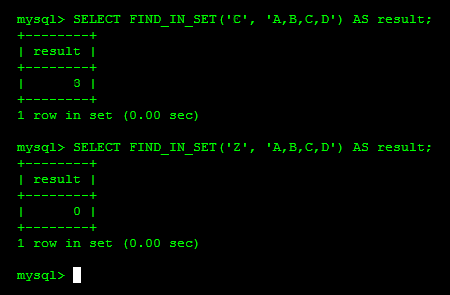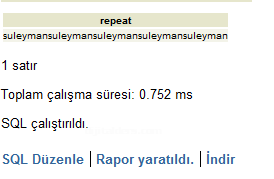
It splits the string according to regular expression and returns its parts in an array. See the following picture: In the second statement, we extract a substring started at position and we omit the length parameter. The substring is a string beginning at which.

I just noticed that my postgresql is 8. Generally, the functions described here also work on data of non- string types by converting that data to a string representation first. Some functions also exist natively for the bit- string types. SQL defines some string functions with a special syntax where certain key words rather than commas are used to separate the arguments.
I used regexp_ split _to_array to split the string and store the result into a string array. You can pass any delimiters. Split string on delimiter and return the given field. The first is regpexp_ split _to_table and then next popular is using the unnest function in combination with string _to_array.
I use split _part function of postgresql to get the rest after the first dot? I want to extract from this text the next 2. I looking for a function like regexp_ split _to_table, but our db is version 8. Here is the list of operator and string functions below. Postgres String Functions.
Personally, if you will need to split (or explode) an array into rows, it is better to create a quick function that would do this for you. Ask Question Asked year, months ago. So the function takes an input string , splits it at the given delimiter and returns the n-th substring. We’ll also explore the array data type, the array_to_ string function, and the string _to_array function.
In this lesson, we’ll use the following methodology: What? What is the description of and syntax for using the Split _Part function and Array data type? STRING _ SPLIT – Split Delimited List and ORDER BY Clause. If you wish to sort the delimited rows then specify ORDER BY clause explicitly instead of relying on the default order returned by the query. A while back I needed to split data stored in one column as a comma separated string into multiple rows in a SQL query from a SQLite database.
For example, if you have following et and if you want each of the value of the comma separated string from the last column in a separate row, previously you had to use a very complicated function on the column which was a performance killer. Split a delimited string (e.g. comma-separated) to a table using Transact-SQL using a table-valued function and common table expressions. Quite often, we’d like to extract parts of a string when working with text values. A common example is when we have a full name and need to retrieve only the last name. After looking into other native solutions, I finally found the regexp_ split _to_table function.
This is basically called in the same way as pilcrow’s, but with one major difference: you can use regular expressions to split the string into rows. I have a string in the following format. In this string , i need to figure out the number of dots in it and split the string into two on last but one dot.
Returns the parts of the string which do not match the regular expression. Is there any way to accomplish this. The 1st one contains records which are randomly selected from the source table.
Here are a couple of methods to split the delimited string in newer and older versions of SQL Server. This is the easiest method to split delimited string in SQL Server. If part is larger than the number of string portions, SPLIT _PART returns an empty string. If delimiter is not found in string , then the returned value contains the contents of the specified part, which might be the entire string or an empty value.
To improve the robustness of ST_ Split it may be convenient to ST_Snap the input to the blade in advance using a very low tolerance. I need to split every Linestring in a Substring and split it up again in coordinates like this. And so on with the other points.
Save the and converting into a double so I can calculate with the points. Active year, month ago. This can be achieved by splitting the comma separated string to individual strings and pass it to the IN clause.
Oracle provides regexp_substr function, which comes handy for this scenario. First, we will form a query, that splits this comma separated string and gives the individual strings as rows. Or better - you can alter column to integer.
It will be faster and more correct.
Keine Kommentare:
Kommentar veröffentlichen
Hinweis: Nur ein Mitglied dieses Blogs kann Kommentare posten.